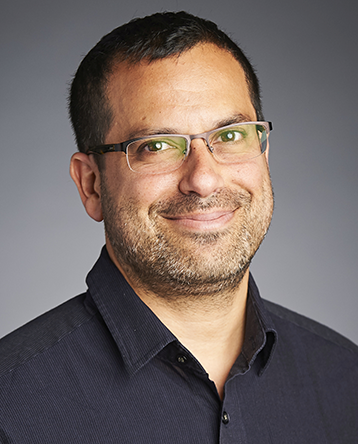Tzahi Cohen-Karni
Professor, Biomedical Engineering, Materials Science and Engineering
Professor, Biomedical Engineering, Materials Science and Engineering

Tzahi Cohen-Karni received both his B.Sc. degree in materials engineering and B.A. degree in chemistry from the Technion Israel Institute of Technology, Haifa, Israel, in 2004. His M.Sc. degree in chemistry from Weizmann Institute of Science, Rehovot, Israel, in 2006 and his Ph.D. in applied physics from the School of Engineering and Applied Sciences from Harvard University in 2011. He was a Juvenile Diabetes Research Foundation (JDRF) postdoctoral fellow at the Massachusetts Institute of Technology and Boston Children’s Hospital in the labs of Robert Langer and Daniel S. Kohane from 2011 to 2013.
Cohen-Karni received the 2012 International Union of Pure and Applied Chemistry Young Chemist Award. In 2014, he was awarded the Charles E. Kaufman Foundation Young Investigator Research Award. In 2016, Cohen-Karni was awarded the NSF CAREER Award. In 2017, he was awarded the Cellular and Molecular Bioengineering Rising Star Award, The Office of Naval Research Young Investigator Award and The George Tallman Ladd Research Award. In 2018, Cohen-Karni was awarded the Cellular and Molecular Bioengineering Young Innovator Award. In 2019, he was awarded the College of Engineering Dean’s Early Career Fellowship.
His team’s efforts have been focused on three major thrusts: (i) synthesis and in depth mechanistic investigation of the unique emergent optical, thermal, electrical and electrochemical properties of novel hybrid-nanomaterials and nanomaterials topologies composed on one-dimensional and two-dimensional building blocks, (ii) application and characterization of hybrid-nanomaterials interfaces with cells and tissue, and (iii) development and engineering of nanomaterials-based platforms to interrogate and affect the electrical properties of tissue and cells such as cardiomyocytes, and neurons, with a specific goal to understand electrical signal transduction in complex 3D cellular assemblies. A few of the major questions the group strives to answer are: Can we make materials and platforms tailored to allow seamless and stable integration with cells and tissue as well as enable sensing and actuation? Can hybrid-nanomaterials allow new insights into biological processes such as tissue development and disease progression?
2011 Ph.D., Applied Physics, Harvard University
2006 MS, Chemistry, Weizmann Institute of Science
2004 BA, Chemistry, Technion Israel Institute of Technology
2004 BS, Materials Engineering, Technion Israel Institute of Technology
CMU Engineering
Wound assessment can be challenging due to its subjective nature, but a new sensor array quantifies biomarkers and has potential to offer real time measurements that could improve the healing process.
CMU Engineering
The Dowd Engineering Seed Fund for Graduate Student Fellowships funds innovative research proposals.
CMU Engineering
A CMU-led team of researchers has secured an award of up to $34.9 million from ARPA-H to develop a new bioelectric medicine-based treatment for obesity and Type 2 diabetes patients.
CMU Engineering
To advance cell-based therapies, researchers have identified a novel device that makes on-site oxygen for biological cells transplanted inside the body.
CMU Engineering
ARPA-H has awarded $45 million to a multi-institutional team of researchers to rapidly develop sense-and-respond implant technology that could slash U.S. cancer-related deaths.
CMU Engineering
Multi-university team, led by Mechanical Engineering’s Vickie Webster-Wood, is building actuators for next generation sustainable bio-bots.
CMU Engineering
Sheng Shen’s novel 3D graphene-nanowire “sandwich” can enable a wide variety of electronic systems to operate at a lower temperature with higher performance.
CMU Engineering
Mayo Clinic and Carnegie Mellon University announced today a research agreement to transform organ transplantation. The institutions will bioengineer innovative approaches to address current barriers in organ transplantation.
NIH
BME/MSE’s Tzahi Cohen-Karni was recently awarded a $3.1 NIH/NHLBI grant to further cardiac electrophysiology research. Over the next five years, Cohen-Karni will partner with Pitt’s Aditi Gurkar (co-PI), BME/MSE’s Adam Feinberg, MechE’s Carmel Majidi, and ECE’s Pulkit Grover to study the role of DNA damage in the cardiac unit using induced pluripotent stem cells.
CMU Engineering
Using light to control how cells “talk” to one another isn’t new science, but researchers at CMU have discovered that MXene, an easily produced nanomaterial, can allow for effiicient cellular communication.
Multiple outlets
Research by BME/MSE’s Tzahi Cohen-Karni was featured in Florida News Times, as well as Knowledia, Asian Share, and Flipboard.
CMU Engineering
Carnegie Mellon researchers are working with DARPA, Northwestern University, and Rice University to develop a system for regulating the body’s circadian clock.